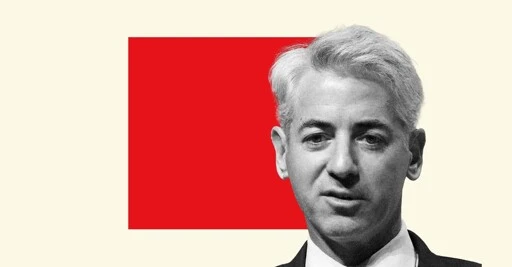Trumpworld Makes the Case Against Trump
Trumpworld Makes the Case Against Trump

Trump World Makes the Case Against Trump

Last November, Republican Representative Troy Nehls of Texas told reporters that “if Donald Trump says tariffs work, tariffs work. Period. Because Donald Trump is really never wrong.” This expression of faith in the great leader is a precept of MAGA-ism. The pigs in Animal Farm had a similar way of thinking: “Comrade Napoleon is always right.”
Trump’s choice to not just claim that tariffs work but actually implement them and cause a market crash has, however, subjected this faith to its greatest test. And so MAGA world is attempting to understand and even argue over Trump’s catastrophic decision making, while accepting Trump’s infallibility as a given.
The most devoted Trump acolytes are dutifully insisting that the dismal stock market does not perturb them in the slightest. ‘‘I don’t really care about my 401(k) today. You know why? I believe in this man,” the Fox News host Jeanine Pirro proclaimed on Thursday. “My own retirement account is down too. Don’t care. All-in on the Great Deal. The Golden Age is on the other side,” the One America News Network anchor Jack Posobiec wrote on X.
But some Trumpists, especially those whose net worth has plunged, find themselves unable to profess indifference in the face of calamity. A few days after “Liberation Day,” the MAGA financier Bill Ackman briefly succumbed to despair. “I don’t think this was foreseeable,” he posted on X. “I assumed economic rationality would be paramount. My bad.”
[Read: Trump is willing to take the pain]
Among the MAGA faithful, this statement amounts to a shocking apostasy. And yet, even so, it was tightly circumscribed. Ackman wrote the entire passage in the passive voice—“this was foreseeable”; “rationality would be paramount”—omitting the need to identify any protagonist behind these disasters. Like so many Trump supporters, especially among the financial elite, he refused to believe that Trump would do the things he’d promised to do, precisely because they were so irrational, without pausing to ask if the very fact that Trump was promising to do crazy things was itself a reason to keep him out of power. Ackman’s little soliloquy ended, fittingly, on a note of personal contrition. The only person he could blame was himself.
For those wishing to avoid further disaster, their only recourse is to complain that Trump has been badly served by wicked advisers. Elon Musk provocatively posted a video of Milton Friedman lecturing about the virtues of free trade. This put him in conflict with Peter Navarro, the Trump trade adviser whose fanatical loyalty to the president is exceeded only by his fanatical protectionism. Navarro questioned Musk’s good faith by noting the conflicts between his auto business and Trump’s trade policy. (Musk, of course, has an almost inexhaustible number of conflicts between his business interests and his government portfolio.) Musk replied by calling Navarro “truly a moron” and “dumber than a sack of bricks.”
These comments might raise questions about the wisdom of the president himself. What kind of chief executive would hand over domestic policy to an adviser with such a deep vested interest in it, or, alternatively, take advice from a true moron with sub-brick intelligence? But to lay blame on Trump himself would violate the central tenet of the MAGA cult and, more important, forfeit any chance to influence its leader. The Wall Street Journal story reporting on Musk’s apostasy was illustrated with him wearing his TRUMP WAS RIGHT ABOUT EVERYTHING cap.
[Jonathan Chait: The Democrats won’t acknowledge the scale of Trump’s tariff mess]
Ackman, firmly grasping the euphemistic protocols necessary to jockey for influence in MAGA world, tried a number of gambits. He blamed corrupt advisers for manipulating the great leader: “Just figured out why @howardlutnick is indifferent to the stock market and the economy crashing. He and Cantor are long bonds. He profits when our economy implodes” (a charge he subsequently withdrew). He tried flattery: “An important characteristic of a great leader is a willingness to change course when the facts change or when the initial strategy is not working. We have seen Trump do this before. Two days in, however, it is much too early to form a view about his tariff strategy.”
When even these indirect complaints drew pushback, Ackman reaffirmed his unwavering loyalty: “Some have misinterpreted my thoughts on tariffs. I am totally supportive of President @realDonaldTrump using tariffs to eliminate tariffs and unfair trading practices of our trading partners, and to induce more investment and manufacturing in our country.” Despite decades of evidence that Trump’s tariff policy is a product of his belief in the efficacy of trade barriers, Ackman chooses to believe that the president is “using tariffs to eliminate tariffs.” This apparently paradoxical feat could be managed only by Trump himself. It raises a question: Could Trump make a trade wall so high that he could not get over it?
At a Senate hearing today, Republican Senator Thom Tillis of North Carolina asked the U.S. trade representative, “Whose throat do I get to choke if this proves to be wrong?” The answer, of course, is not Donald Trump’s. It could never be Donald Trump’s.